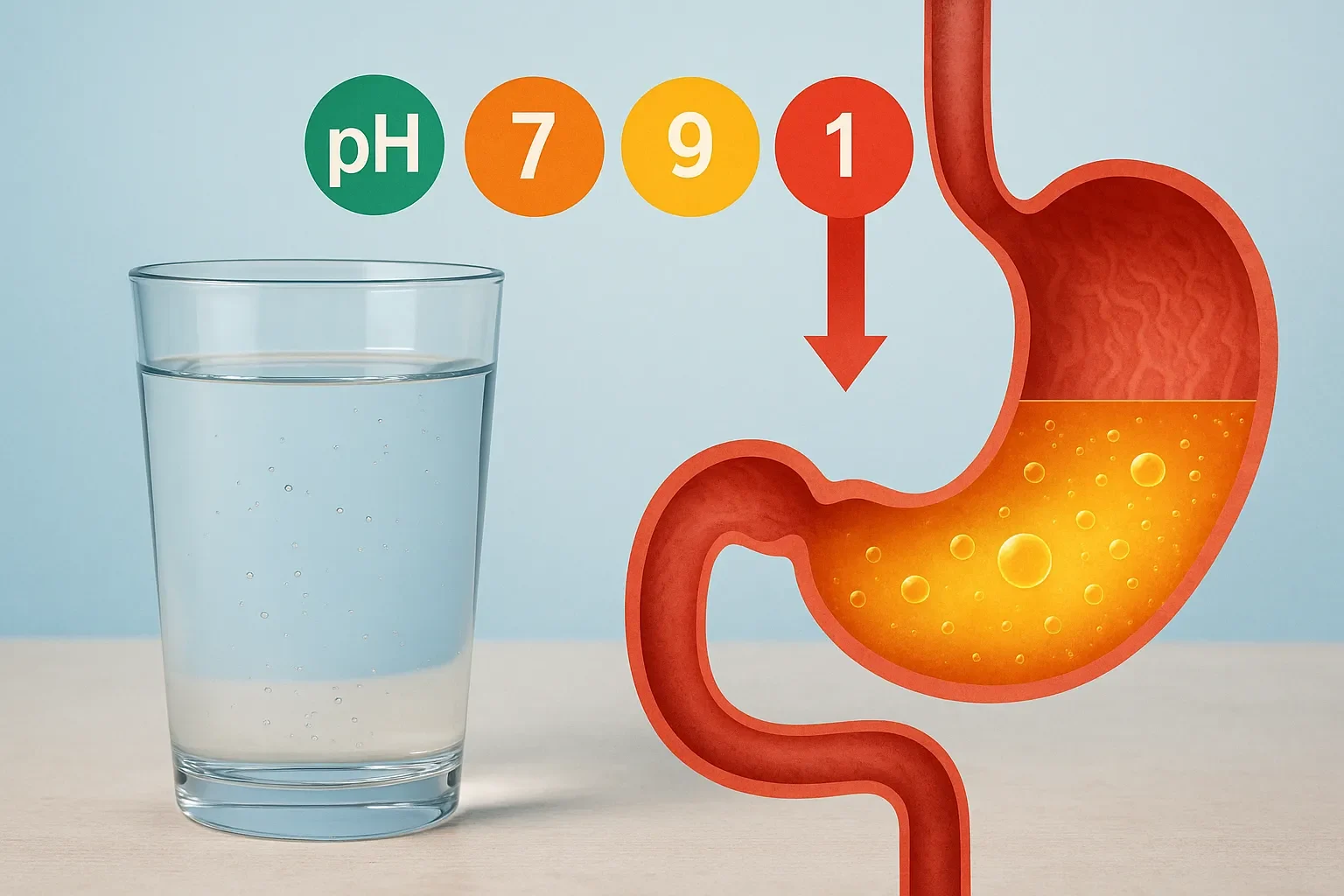The wellness industry loves a quick fix, and alkaline water has been one of the most persistent promises. Bottled and sold with claims that it can “alkalize your body,” prevent cancer, and reverse disease, it sounds appealingly simple. Just drink higher-pH water, and your health problems disappear. But the truth is that human biology does not work that way.
Your body keeps blood pH within one of the tightest ranges in all of physiology, between 7.36 and 7.44. Even the smallest shift outside this window can be dangerous, which is why your lungs and kidneys are constantly adjusting levels of acid and base. This is not optional; it is survival. No beverage, no matter how alkaline, can override that system.
The very idea of “changing body pH” is also misleading, because there is no single number. Different tissues maintain their own environments for a reason. Your stomach is profoundly acidic, with a pH as low as 1, designed to sterilize food and break down protein. Your skin is mildly acidic to protect against microbes. Your cells and organelles all operate on their own finely tuned set-points. To suggest that a single drink could shift all of this is not only naïve, it is unscientific.
Why the Stomach Ends the Myth
The strongest evidence against the alkaline water myth lies in the stomach itself. The moment you swallow it, alkaline water collides with hydrochloric acid. Neutralization happens instantly, leaving nothing more than salt, water, and a little gas. Within minutes, the stomach restores its acidity by secreting more acid. By the time anything passes into the small intestine, the drink is neutral again, buffered further by pancreatic secretions. In other words, alkaline water never makes it into the bloodstream as “alkaline.”
Some small studies have suggested that alkaline water may help people with heartburn or reflux, but this is simply a local effect that buffers acid in the esophagus or stomach. It is not systemic, and it certainly does not “alkalize the body.” Larger reviews confirm this. The supposed benefits are far more likely due to minerals such as calcium or magnesium in the water rather than its pH.
Risks of Overuse
What is less often discussed are the risks of overuse. Chronic intake of highly alkaline waters, particularly those rich in absorbable bicarbonate, can stress the kidneys and, in some cases, contribute to metabolic alkalosis or high blood calcium levels.
Historically, the “milk-alkali syndrome” caused by overconsumption of calcium and bicarbonate serves as a reminder that tampering with acid–base balance can cause harm rather than health.
The Real Foundation of Health
The reality is that alkaline water is just water. It quenches thirst but does not rewrite physiology. The body’s systems are far too precise and resilient to be altered by the pH of what you drink.
True health comes from respecting the design already in place:
-
Nutrient-rich foods
-
Balanced minerals
-
Strong kidney and lung function
-
Daily movement
These are the real levers of metabolic and structural resilience—not a bottle promising shortcut.
Final Word
Alkaline water may be trendy, but when examined through the lens of physiology and osteopathy, it collapses under its own claims.
👉 Your stomach ensures the myth ends where it begins.








